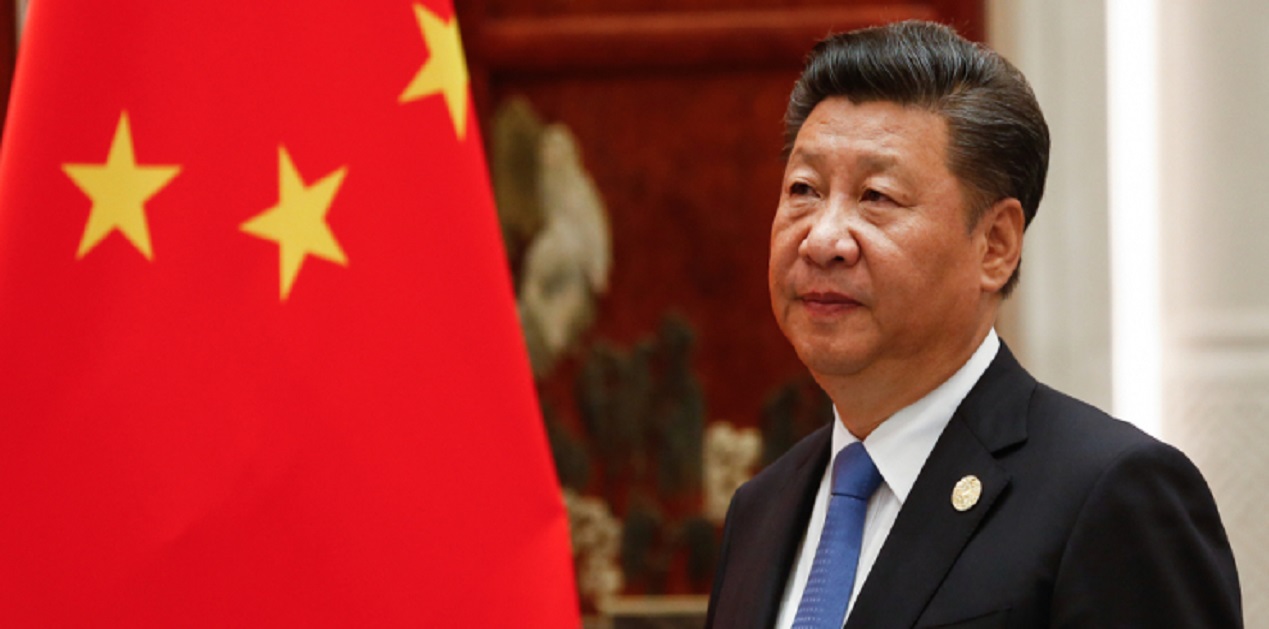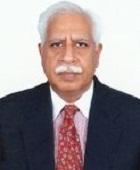Moving rapidly after the 20th Party Congress (October 6-12, 2022) approved his policies and endorsed him for a third term, Chinese President Xi Jinping has over the past year and a half further tightened his grip on the Party, the People's Liberation Army (PLA) and especially the security apparatus. Since last year Xi Jinping has increased the country’s priority for security, as seen at the Politburo study session on January 31 when security was placed on equal footing with development. He has enhanced attention to strengthening his grip on the Ministry of State Security (MoSS) and Ministry of Public Security (MPS), referred to by Chinese Communist Party (CCP) members as the "knife handle".
Xi Jinping removed or neutralised people and appointed loyalists to head security organisations including the Party's security-related United Front Work Department (UFWD) and International Department, earlier known as the International Liaison Department. Indicating the importance Xi Jinping attaches to national security and the united front strategy, the heads of both these organisations are now members of the Politburo. China's new Foreign Minister Qin Gang too, is a Xi Jinping loyalist and has an intelligence background in the CCP having served many years in the International Liaison Department (ILD), which could mean greater synergy in the functioning of these departments.
With Politburo member Guo Shengkun's retirement at the 20th Party Congress, Xi Jinping now has loyalists in all key security-related positions. Though Guo Shengkun was elevated to the Politburo at the start of Xi Jinping’s second term as General Secretary of the CCP Central Committee (CC) in 2017, he has long been assessed as affiliated with former Chinese President Jiang Zemin.
The new heads of the Ministry of Public Security (MPS) and Ministry of State Security (MoSS) are persons who have worked for many years with Xi Jinping. Wang Xiaohong, formerly Executive Vice Minister of Public Security who was Xi Jinping's head of security in Fujian and followed him to Beijing, is a very close associate. Chen Wenqing, a professional public security official and the former Minister of State Security has been elevated to the Politburo and becomes the first professional security official in over a decade to become a member of the Politburo. Chen Yixin, then Deputy Secretary of the Central Political and Legal Affairs Commission (CPLAC) is the current Minister of State Security and Secretary General of the Central Political and Legal Affairs Commission. Chen Yixin is a close ally of Xi Jinping and worked with him in Zhejiang and was brought to Beijing when Xi Jinping moved there.
The current tense social and adverse international environments require that the security establishment is not compromised. The rash of protests between October-December and the protests by pensioners in three major cities earlier this month will have been unsettling. Indications are that appointing loyalists to head these key ministries and departments, is preparatory to launching a 'rectification' campaign, or purge, that will mainly target its middle and lower levels and make the security outfits fully loyal to him. That the security apparatus will undergo another rectification drive, or a purge, was mentioned during the Party Congress. The rash of protests across China in the past few months seem to have spurred Xi Jinping to eliminate elements that are lax or not fully committed to his ideology.
The security apparatus was last investigated in 2012-13 immediately after Bo Xilai, then a Politburo member and son of one of China’s “Eight Immortals” failed in his bid to oust Xi Jinping and become CCP CC General Secretary. In 2013, Xi Jinping established a National Security Commission and passed a number of laws reinforcing national security. It was, however, only in 2021 that the security apparatus was subjected to intense scrutiny and 'rectification'. The rectification campaign was spearheaded by Chen Yixin, the then Deputy Secretary of the Central Political and Legal Affairs Commission (CPLAC). Interestingly, the call for the rectification campaign to control the “knife” was given by Chen Yixin and not Guo Shengkun who, as a Politburo member, was senior to him!
In the past two years high-profile senior Party members of the ‘Sun Lijun Political Group’ opposing Xi Jinping were successively expelled and awarded severe sentences by the Party authorities. Efforts to unearth them still continue and one prominent case was publicised last October. An overseas Chinese commentator observed that the group was backed by former CPLC Secretary Meng Jianzhu, former Politburo Standing Committee member Zeng Qinghong, and former Party Chief Jiang Zemin. He assessed that once Xi Jinping returned from Yan’an after the 20th Party Congress, a major rectification, and possibly showdown, is inevitable. Chen Yixin has since been promoted and appointed Minister of State Security and Secretary General of the Central Political and Legal Affairs Commission.
Since Xi Jinping focussed on the security apparatus its budget and personnel have steadily increased and the CCP’s vision of security now includes 16 areas. Unsurprisingly, national security had its own section in the Work Report approved at the 20th Party Congress. It declared that: "We must take the people’s security as our ultimate goal, political security as our fundamental task, economic security as our foundation, military, technological, cultural, and social security as important pillars, and international security as a support". The ‘Decision of the Central Committee of the Communist Party of China on Conscientiously Studying, Propagating and Implementing the Spirit of the Twentieth National Congress of the Communist Party of China’, published by the People’s Daily on October 31, 2022, clarified that while food, energy, resources, cyber, financial and other forms of security are important, considerable importance is to be given to the need to ‘improve the level of public security governance, improve the social governance system, and resolutely safeguard national security and social stability.’ Developing the ‘Fengqiao model’ and improving ‘grid-based management, meticulous services, and IT support’ are euphemisms for tightening control and surveillance over society.
The top echelons of the security hierarchy have moved rapidly under its new leadership. On November 28, 2022, two days after the outbreak of nationwide protests against the zero-Covid policy (also called the ‘White Paper Revolution’), the Chinese Communist Party’s (CCP’s) apex security body, the Political and Legal Affairs Committee (PLAC), held a plenary session emphasizing the need to “resolutely crack down on the infiltration and sabotage activities of hostile forces, and resolutely crack down on illegal and criminal acts that disrupt the social order.”
Chen Wenqing, the new head of the PLAC, presided over the meeting. Wang Xiaohong, the Minister of Public Security, Zhou Qiang, the President of the Supreme People’s Court, and Zhang Jun, the President of the Supreme People’s Procuratorate -- all Xi Jinping loyalists -- also attended. The meeting was the CCP’s response to the protests. It called for strengthening the “combat spirit” and accelerating the construction of a higher level of “a safe China under the rule of law.” it stressed the need to promptly channel and resolve conflicts and disputes and to help solve the practical difficulties of the people. It asked cadres to “resolutely combat the infiltration and sabotage activities of hostile forces, to resolutely combat illegal and criminal acts that disrupt the social order, and effectively to maintain the general stability of society.”
Outgoing Politburo member Guo Shengkun published a lengthy and important article in the People’s Daily (November 24, 2022) where he disclosed that Xi Jinping is actively involved with the security apparatus. It credited him with promoting the modernization of the national security system and its capabilities, and “pointing out the direction for us to do a good job in maintaining national security and social stability”. Guo Shengkun stressed the “two establishments” and “two safeguards” and the absolute and “strong leadership of the Party Central Committee with Comrade Xi Jinping at the core”. He said “modernization of the national security system and capabilities is an inevitable requirement for preventing and defusing risks and challenges” and added that “National security is the foundation of national rejuvenation, and social stability is the prerequisite for national prosperity”. He reiterated: “Various "black swan" and "grey rhinoceros" incidents may occur at any time. The risk tests we face are becoming more and more complicated. Get ready for a big test with rough seas and even rough seas.” He stressed “we must closely focus on upholding the Party’s absolute leadership over national security work, upholding the Party Central Committee’s centralized and unified leadership over national security work, unswervingly follow the path of national security with Chinese characteristics, and improve institutional mechanisms and institutional systems”. Guo Shengkun also, importantly, emphasised the need to “Strengthen the party building on the national security front, adhere to the party's political construction as the guide, and forge a loyal, pure and reliable national security cadre team”. The same day the Guangming Daily published an article captioned ‘Promoting the Transformation of Public Security Governance Model’, which similarly detailed the areas of focus of the public security apparatus.
Later, the National Conference of Directors of Public Security Bureaus met in Beijing on January 8, 2023. The meeting, inter alia, emphasized the importance of deeply comprehending “the decisive significance of the "two establishments", strengthen the "four consciousnesses", strengthen the "four self-confidence", and achieve the "two safeguards", and stated that “the Party Central Committee with Comrade Xi Jinping as the core attaches great importance to public security work, leading the public security work in the new era to achieve historic achievements and undergo historic changes”. It instructed public security organs and cadres across the country to be loyal to the party, “faithfully fulfil their missions and tasks” in the new era, and ensure long-term social stability. The meeting emphasized “that the next five years will be a critical period for the start of building a modern socialist country in an all-round way”.
Three days later on January 11, the People's Daily (January 11) published an article by Chen Yixin, Minister of State Security and the Secretary General of the Central Political and Legal Affairs Commission, captioned 'Improve the social governance system (conscientiously study, publicize and implement the spirit of the 20th National Congress of the Communist Party of China)'. It said "Improving the social governance system is a major task proposed by the Party Central Committee with Comrade Xi Jinping as the core, from the strategic height of promoting the modernization of the national security system and capabilities, and resolutely maintaining national security and social stability." It said "The Party Central Committee has strengthened its leadership over social governance, established a Safe China Construction Coordination Group, and promoted the establishment of a strong and powerful organizational leadership system, a systematic and complete institutional system, and an integrated and coordinated working mechanism." It added "The establishment and improvement of the legal system and enforcement mechanism for the Hong Kong Special Administrative Region to safeguard national security has achieved a major turning point in the situation in Hong Kong from chaos to order. Preventing and cracking down on infiltration, sabotage, subversion, and separatist activities by hostile forces has resolutely safeguarded the security of state power, system, and ideology."
The article focussed on social stability and activities of “hostile foreign forces”. It revealed: "Adhering to and developing the "Fengqiao Experience" in the new era, and strengthening the construction of grassroots organizations, the country's towns (streets) have basically been equipped with political and legal committee members, and more than 583,000 comprehensive management centers at all levels have been established, with a total of 4.5 million grid members. " The article explained: "Political security is the foundation of national rejuvenation. It is necessary to effectively prevent the infiltration, sabotage, subversion, and separatist activities of foreign hostile forces, and to promptly detect and quickly deal with the illegal activities and movements of hostile forces and related organizations. It is necessary to effectively remove the soil that affects political security in the country, promote the "de-radicalization" work to achieve remarkable results, and maintain "zero occurrence" of serious violent and terrorist activities in the country; Social stability is the prerequisite for a strong country. It is necessary to prevent and control stability-related "variables" and effectively prevent social risks from turning into political risks, regional risks from turning into global risks, and overseas risks from turning into domestic risks; and that people's safety is a very important livelihood. To achieve a continuous decline in criminal cases, the eight types of serious violent cases have decreased year by year, and the high incidence of new cybercrime has been effectively curbed. It called for improving the party committee leadership system and said "Adhere to the party's overall leadership, implement the system of requesting instructions, reporting, decision-making, and execution, strengthen the organization and command system, and improve mechanisms such as overall planning and implementation. Fulfil the duties of the Political and Legal Committee of the Party Committee to take the lead in coordination, organization and promotion, and supervision and implementation, and mobilize the enthusiasm of various departments and units to participate in social governance. Give full play to the role of grassroots party organizations as a battle fortress, and build a new work pattern of regional overall planning, block coordination, and joint construction and sharing."
National security received increased prominence with Xi Jinping’s ascendance to office in 2012. It received a boost in 2021 with the “new development phase” -- two of its three main points related to security and stability – and is among the main themes in official propaganda. The widespread domestic dissatisfaction and the CCP leadership’s fears that “hostile foreign powers” could instigate a “colour revolution” will ensure that emphasis on security will continue through Xi Jinping’s third term. It will be further enhanced with data controls and the application of technology.
(The paper is the author’s individual scholastic articulation. The author certifies that the article/paper is original in content, unpublished and it has not been submitted for publication/web upload elsewhere, and that the facts and figures quoted are duly referenced, as needed, and are believed to be correct). (The paper does not necessarily represent the organisational stance... More >>
Image Source: https://www.ifri.org/sites/default/files/styles/image_contenu_article/public/thumbnails/image/shutterstock_1376982239_0.jpg?itok=3CCLhnTa











Post new comment